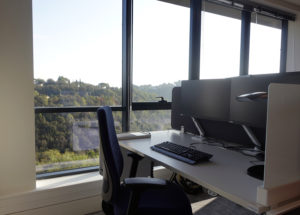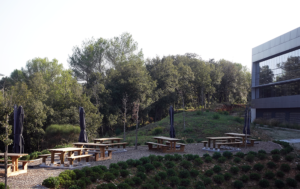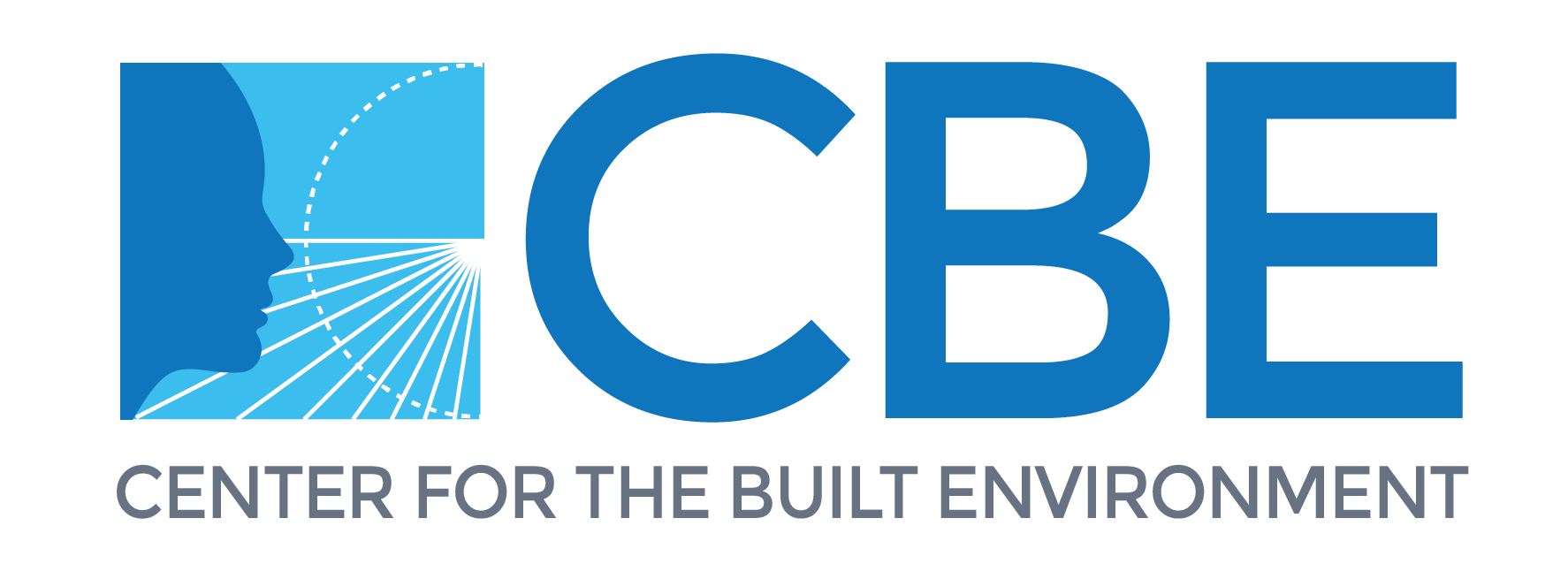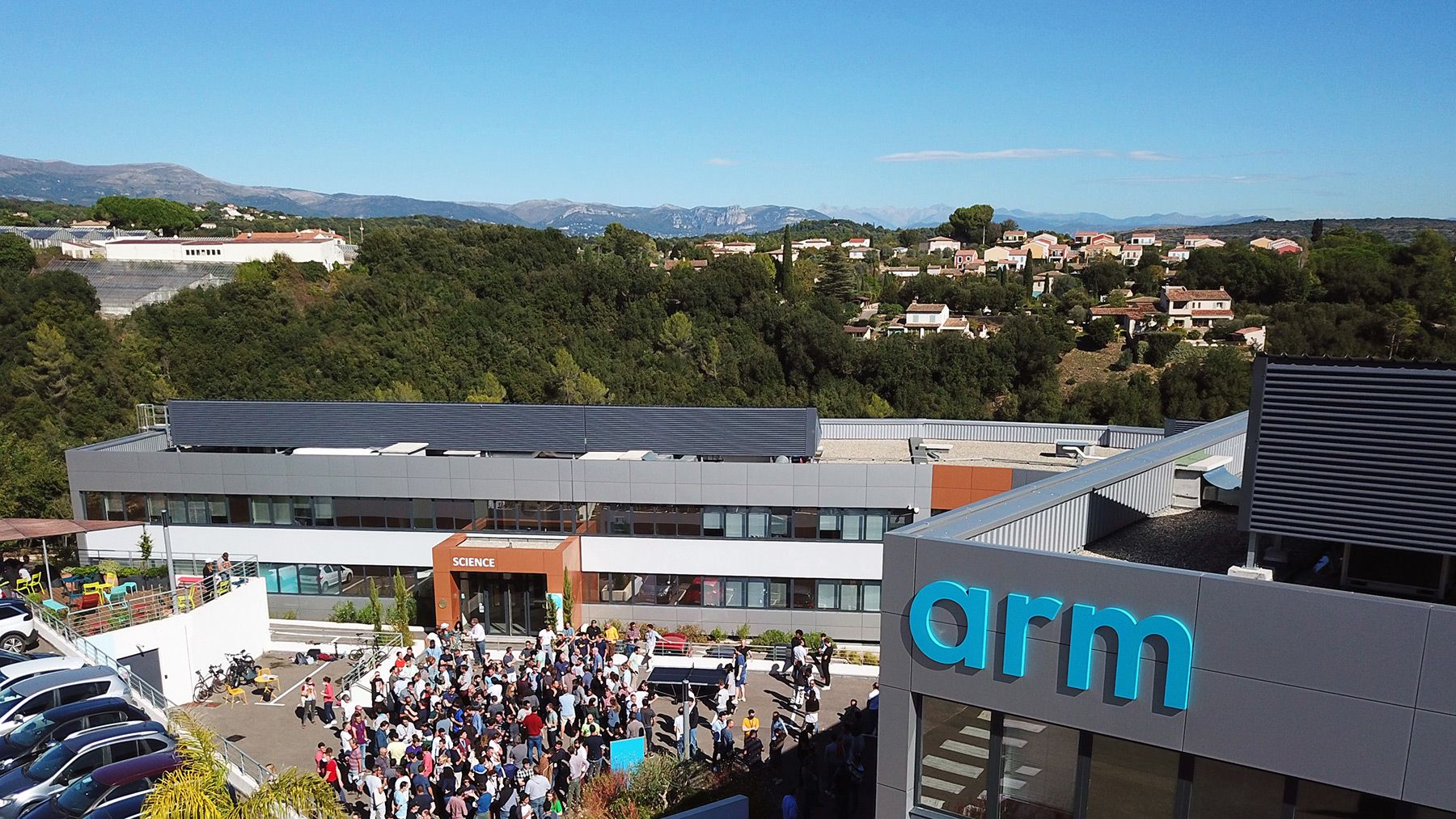A recently opened technology campus in France has received the Livable Buildings Award for 2022 from UC Berkeley’s Center for the Built Environment. Now in its sixteenth year, this annual award program recognizes excellence in sustainable design and user satisfaction as measured by CBE’s Occupant Survey. This year’s winner, Arm France, is unique by being the first award winner outside of North America since the award program was launched. The Arm campus in France is one of many company sites around the world, and was developed based on LEED and WELL building standards in order to provide a healthful, flexible and sustainable workplace. Read more about the award and the building’s features on the award webpage.
Arm France has had a presence at the Sophia Antipolis technology park, located near Nice in the south of France, for over 25 years. As the oldest technology park in Europe, it functions much like a French version of Silicon Valley, housing 2,500 companies and over 30,000 employees. However, Arm’s older buildings had become obsolete, with common problems related to comfort, ventilation and acoustics. Consequently, the firm proceeded in 2017 to create new facilities, with a goal of creating facilities that would enable innovation and collaboration, attract and retain talent, provide healthy and productive workplaces, allow for growth, and provide a setting where employees from around the world could come together. To meet these goals, Arm’s facility management team worked with the property owners and their designers to develop two new rental buildings constructed to their specifications. Over a two-year development cycle, workshops and outreach efforts led to the design of floor plans that would enable three types of workspaces: living spaces, teamwork spaces and concentration spaces.

The design provides access to quality views to the surrounding landscape.
The project brief also outlined numerous sustainability and healthy-building goals, guided by the LEED and WELL building standards, and the project ultimately exceeded its goals by reaching certification at LEED Gold and WELL Platinum levels. Christophe Frey, VP of Regions and General Manager of Arm France, explains that these standards were extremely helpful in driving the design, serving as a “compass for the design team” which had been used at other company sites, for example, in San Jose, California, and Bangalore, India. However, he notes that their use in France created challenges as they are not as widely adopted there as in other counties. For example, manufacturers often did not have the detailed product information required for certification.
Additional challenges resulted when the Covid-19 pandemic arrived just as construction was being completed, with one building coming online in January of 2020, and the second one in May of that year. Frey notes explains the challenges, “Soon after I took the role of VP of workplace, the pandemic broke out and I ended up managing the unprecedented crisis that we all went through, whilst driving the completion of a challenging construction project.”
When offices were closed, the development team provided access to the building facilities for the contractors, a gesture that was appreciated and aided in the project completion. Also, the flexibility that had been designed into the project served to make it highly functional in a post-Covid, hybrid work format. The team later incorporated additional features to make outdoor meetings and gatherings possible, creating a new picnic area, and hiring an artist to enliven the area with murals. The area’s pleasant Mediterranean climate enables this for much of the year.

During the post-Covid move-in the design team added outdoor amenities including areas for meeting, dining and breaks.
The project team incorporated many measures to meet sustainability and livability goals. Amenities include an on-site gym and a restaurant with healthy options, and shared e-bikes for commuting to the bus station. Workstations are located within six meters of quality window views of the surrounding landscape, and desks allow for sit-stand usage. Building systems include state-of-the-art energy and water conserving technologies. Compared to the older campus buildings, energy use intensity was reduced by 55 percent, plus the company moved to fully renewable energy from its electrical provider.
Although the project will be leased and not owned by Arm, the company invested close to nine million euros to include numerous additional sustainability and wellness features. This investment has paid off for Arm, as the building is one of the highest scoring projects among all the buildings that have used the CBE Occupant Survey. Compared to over 900 buildings in the survey database, the feedback from the employees at Arm France places it the top percentiles across all the categories included in the survey. The survey further revealed that 95 percent of occupants feel that the work environment enhances their life satisfaction, and 92 percent feel that it enhances their mental health.
As the impacts of the pandemic recede, and people are returning to workplaces on a more regular basis, Arm has noted that the France campus is among the most used facilities worldwide, with occupancy generally close to 50 percent, and up to 60 to 65 percent at times. To facilitate collaboration and community, the office holds ‘connect’ days when close to 95 percent of the staff attend. Christophe Frey notes that the site recently hosted a quarterly meeting convening the entire management committee and staff from around the world, the first such meeting since offices closed in 2020. “People had a good experience here at this site, and it feels like we have finally turned the corner on Covid.”

